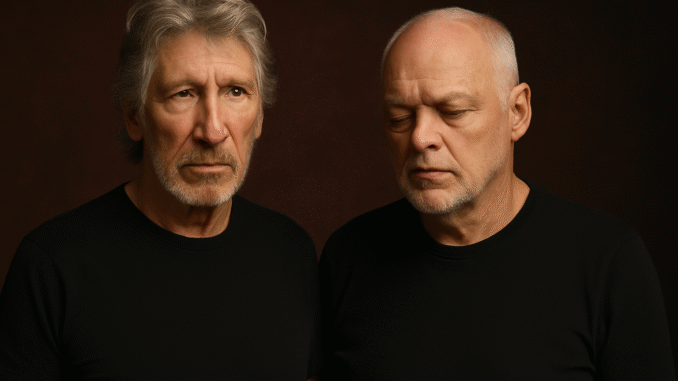
In the world of rock music, few feuds have been as legendary — or as emotionally charged — as the one between Pink Floyd’s David Gilmour and Roger Waters. The creative tension that once fueled some of the most iconic albums in music history also fractured the band for decades. But now, fans have reason to hope. In a recent interview, Gilmour finally spoke candidly about what it would take to truly mend things with Waters, and his words struck a chord.
“Reuniting with Roger has never been simple — it’s like trying to solve a puzzle where half the pieces don’t want to fit,” Gilmour said. The quote encapsulates the complex relationship between the two bandmates. Their musical chemistry was undeniable, but so were their clashing visions and personalities. Gilmour’s use of metaphor highlights just how far apart they’ve drifted over the years.
Pink Floyd’s rise to fame was built on innovation, introspection, and a kind of emotional honesty that resonated deeply with fans. But behind the scenes, tensions were brewing. After Waters left the band in the 1980s, legal battles and personal animosity left little room for reconciliation. It seemed like the divide was permanent.
And yet, Gilmour’s recent comments suggest otherwise. “There’s history, pride, and a lot of pain between us,” he said, acknowledging the emotional baggage that has long stood in the way. This moment of vulnerability isn’t just rare — it’s revealing. It shows that, for the first time in years, Gilmour is looking at the past not just with anger, but with perspective.
Time, as they say, heals all wounds — or at least dulls their sting. Gilmour admits that “something softened” over the years. Though he doesn’t explain exactly what changed, the implication is that both men may be more open to dialogue now than ever before. The bitterness has ebbed, replaced by a quiet willingness to listen.
What’s perhaps most striking is Gilmour’s admission that they’ve finally had a real conversation. “We started to see each other as people again, not just as rivals in a band,” he said. For a relationship once defined by creative competition and legal standoffs, this humanizing shift is monumental.
Of course, fans have been burned before. Hints of a reunion have flickered and died out countless times over the years. But this time feels different — not because Gilmour promised anything, but because he’s finally acknowledging the human cost of the feud. That kind of honesty is hard to ignore.
Gilmour was careful not to raise expectations too high. “It’s not a full reunion, not yet,” he clarified. But in the same breath, he gave fans something they haven’t had in years: hope. “There’s been a real conversation — and for the first time in years, it didn’t end in silence or shouting.”
For a band as emotionally and artistically intense as Pink Floyd, that small sign of peace speaks volumes. Sometimes, the most powerful progress isn’t a tour announcement or a new album — it’s a conversation that ends with understanding instead of a slammed door.
The final line of Gilmour’s quote might be the most poetic: “That, to me, is progress. That’s hope.” For those who grew up with Wish You Were Here and Comfortably Numb as soundtracks to their lives, those words are almost as powerful as the music itself.
Whether or not a full Pink Floyd reunion ever happens is still unknown. But if Gilmour and Waters are finally talking — really talking — then something beautiful may yet come from the wreckage of the past.
And for fans who’ve waited decades, even a spark of reconciliation is more than enough to dream again.
Leave a Reply